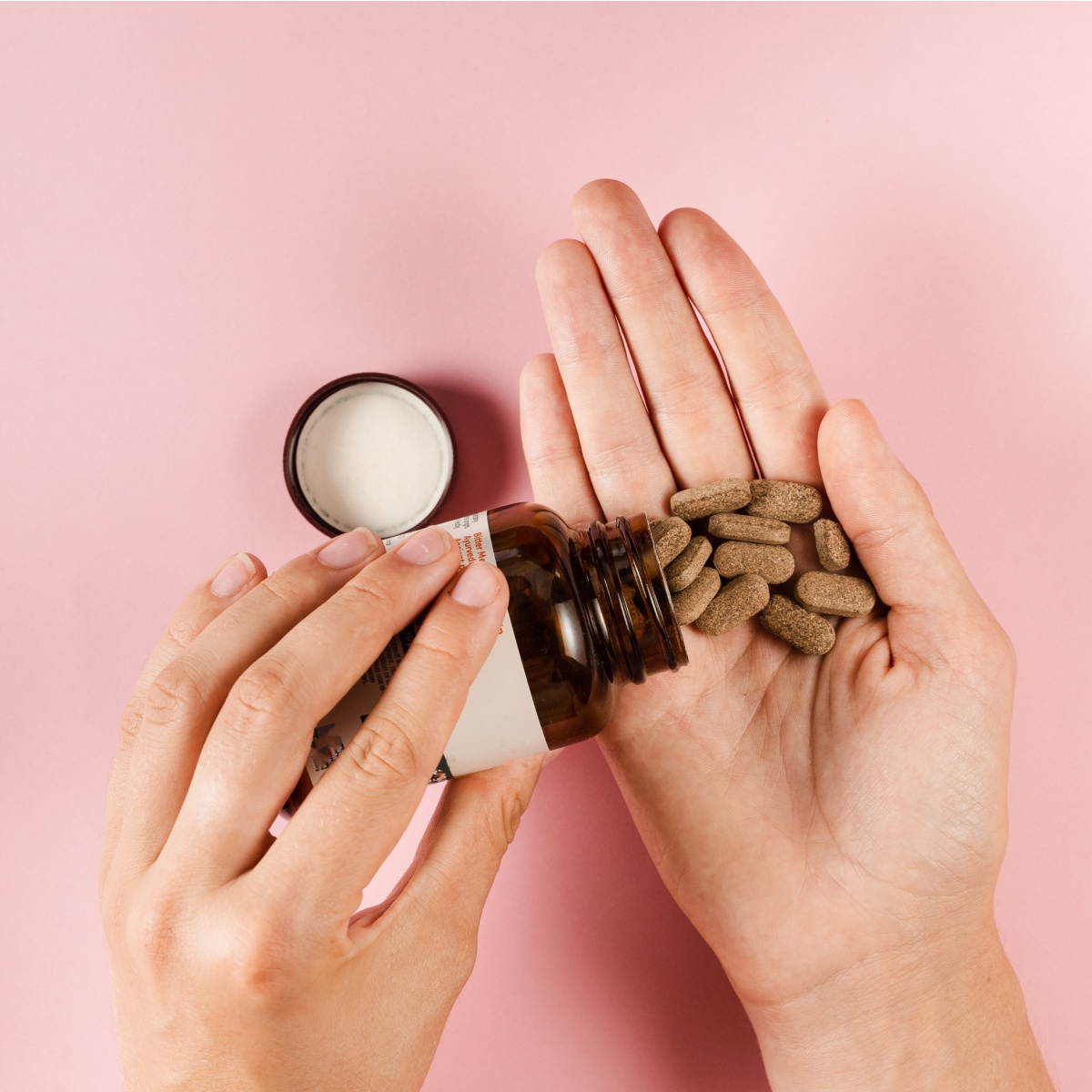
1. Magnesium
Magnesium will help to reduce stress by supporting the adrenal glands and calming your nervous system. By having lower stress levels, you will reduce cortisol production, a hormone linked to fat storage.
"It's such a powerful little nugget," she claims. "And if you're deficient in magnesium, you're going to turn into a little cranky pants," she adds, further validating all the emotional rollercoasters women go through during this time.
2. Vitamin D
Vitamin D can help support functions of key hormones, and by promoting this balance, it can help reduce symptoms like weight gain, fatigue, and mood swings during menopause.
"It’s actually a hormone, which you can get from the sun, but many people are deficient in vitamin D, and they don’t know it. It's critically important for your bone health; you may not realize you’re deficient; you might be having mood changes, feeling anxious, feeling depressed. It’s really necessary for your immune function.” She also notes that women who lack vitamin D have a harder time losing weight.
3. Omega-3 Fatty Acids
Being deficient in Omega-3s can affect your mood and even increase inflammation, she reveals. "It also makes it way harder for you to lose weight; it's one of those things that helps you keep your hormones balanced."
4. Prebiotics
She explains that a prebiotic along with a pro and post biotic is even better! This is because "it will bypass the stomach acids and get down to that lower intestine where it needs to be to help heal your gut flora."
She says your gut is essentially your immune system, "your second brain," so having poor gut health will throw everything off, including menopause weight.
5. Collagen
During menopause, loss of estrogen can lead to reduced muscle mass and a slow metabolism. Supplementing with collagen will help to maintain lean muscles, which boosts metabolism and promotes weight loss.
She calls collagen the "holy grail" of anti-aging from the inside out. "A liquid collagen that actually targets fat..helped me out so much," she notes. "All of those signs of aging that we’ve come to see as just part of the process are actually related in great measure to a decline in collagen production."


